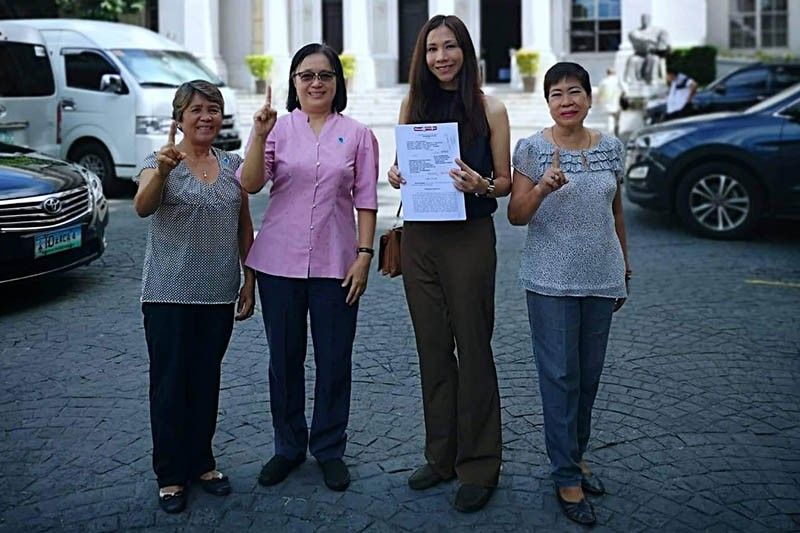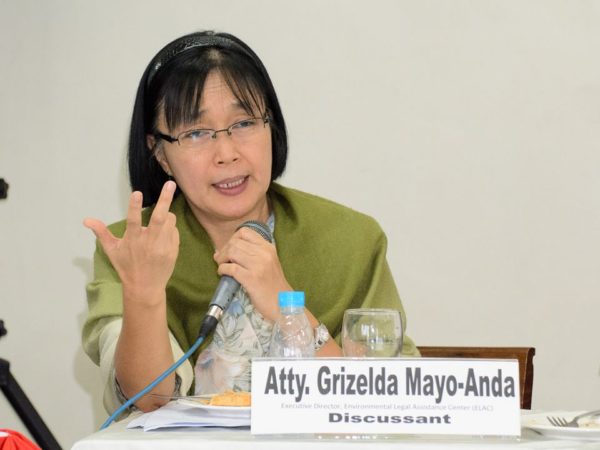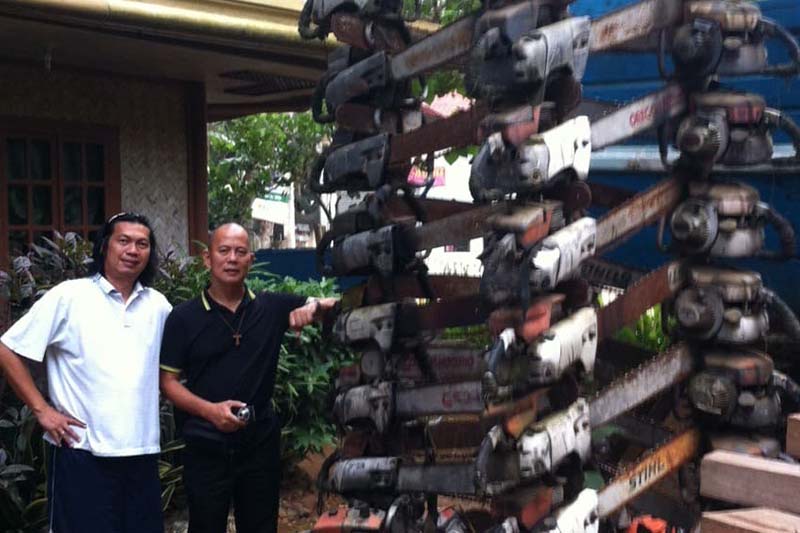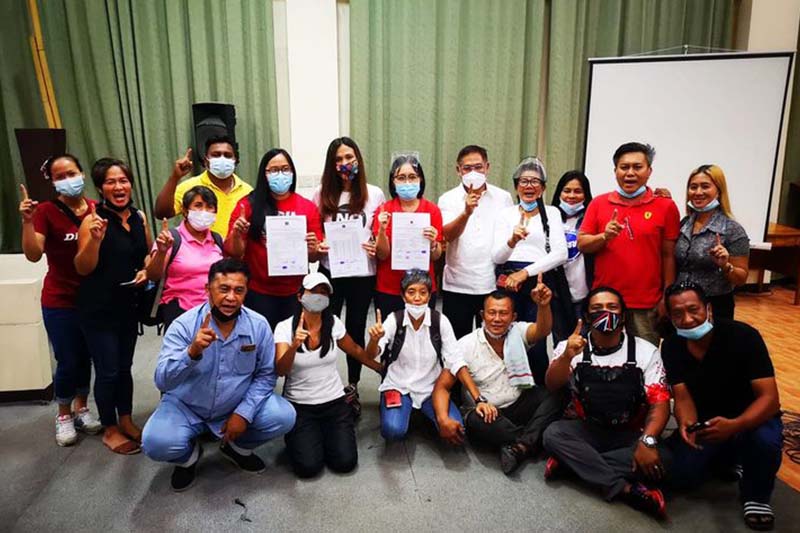Lawyering for the environment: An unwavering stance to empower communities

Part 1 of a two-part feature on environmental lawyers in the Philippines.
Read Part 2 here.
MANILA, Philippines — In a plebiscite last month, residents of Palawan voted against ratifying a law to divide the country's last ecological frontier into three smaller provinces.
The "no" vote won in 19 out of 23 municipalities, with 172,304 people voting against the breakup. Campaigners said it was like David’s victory over Goliath.
On one side were political families who have long pushed for the division.
On the other side was the Save Palawan Movement—composed of non-governmental organizations, civil society organizations, and people's organizations—advocating keeping Palawan as one province. Unlike the political elites, they had limited funds and no machinery.
For groups against the division, breaking up the country’s biggest province would further jeopardize Palawan’s already threatened forests and coastal ecosystems, and weaken the enforcement of environmental laws, while allowing political clans to grab more power.
Among those who vigorously campaigned against the split were environmental lawyers Gerthie Mayo-Anda and Robert Chan.
Legal empowerment

Thirty years ago, Mayo-Anda founded the Environmental Legal Assistance Center, Inc., a non-governmental organization committed to helping communities uphold their constitutional right to a healthful and balanced ecology.
Their quest is to assist and defend indigenous peoples, fisherfolk, farmers, women, youth, and the marginalized—sectors who bear the brunt of climate change, deforestation, and destruction of coastal resources.
The Puerto Princesa-based ELAC provides legal representation in environmental court cases, legal advice in drafting environmental laws and paralegal training, and conducts research and advocacy related to environmental issues.
The organization — which has six staff members, including two lawyers — works on issues related to the access to and use of forestry and coastal resources, pollution, and land use tenure. It is also active in campaigns against mining, coal plants and monocrop plantations in Palawan.
"The way ELAC does its work, it is legal empowerment, it should not be litigation. Once you litigate, you go to the formal process and it’s very tedious and stressful to the communities," Mayo-Anda, the group's executive director, said in an interview with Philstar.com.
"We explore what we call dialogue, engagements, metalegal remedies. If you can stop quarrying through writing a government agency, through an investigation or a petition, that will be great. If none of those works, it’s either we file a case before the ombudsman against these certain government officials or we go to court," she added.
ELAC also set up satellite offices in other parts of Palawan and areas in Visayas to respond to requests for legal assistance. However, these were not sustained due to the lack of funding support.
Hard-hitting stand

Chan, the executive director of Palawan NGO Network Inc. (PNNI), cannot come home.
His team of cash-strapped para-enforcers is known for using citizen's arrest to confiscate over 700 chainsaws used to destroy Palawan's protected areas and natural resources. Kalikasan People's Network for the Environment called him a man with “uncompromising stance and hard-hitting actions on environmental issues.”
But in January this year, the environmental lawyer was declared persona non grata by the provincial government reportedly as a response to critical statements that he made years ago about the problems of illegal logging and fishing in Palawan.
On top of that, there have also been threats of rebellion and sedition complaints, which he said have prevented his return to Palawan to campaign against the division.
But in a forum hosted by the Center for Environmental Concerns-Philippines on April 22, Chan said the persona non grata declaration against him "was only the flashpoint that gelled everything together."
"I am still persona non grata. I cannot transact with the provincial government, even pay real estate taxes. But it allowed people to see the oppression and they came together and helped us win," Chan, who is currently in Manila, said.
Pala-won

In 2019, Duterte signed Republic Act 11259 that sought to divide Palawan into the provinces of Palawan del Norte, Palawan Oriental and Palawan del Sur.
Advocates and supporters of the proposal said breaking up the province would allow local governments to deliver services better and address development issues. But critics said it would harm the environment and the people, especially indigenous communities.
Palawan, with 1,780 islands and islets, is endowed with rich natural resources and highly diverse flora and fauna. According to UNESCO, it has 105 out of the 475 threatened species in the Philippines.
Mayo-Anda said the division was driven by political agenda and done without studies and consultations.
“The proponents never even considered the nature and characteristics of Palawan as a unique biodiversity area and its significant role in the life of this country,” she said.
Had the “yes” vote won, “there will be legal battles and there will be more problems,” Mayo-Anda said. Fortunately, the “no” vote prevailed.
READ: 'Palawon't': Residents reject proposal to divide province
Dangerous, difficult career
With the Philippines consistently ranked as one of the deadliest countries for environmental activists, lawyering for the environment and the people who depend on it puts one’s life at risk.
Lawyers specializing in environmental issues also typically do not get paid as well as those working in the corporate sector.
Mayo-Anda said there are “very few” environmental lawyers in the Philippines who advocate for legal empowerment and advance social justice because “the situation is really difficult and it’s not lucrative.”
Young people from countries already feeling the impacts of climate change are rising above the challenges to sound the alarm, and call for urgent and genuine actions from policymakers and corporations. It’s a welcome development for Mayo-Anda but she has a message to aspiring environmental lawyers.
“The kind of work that we do is not a lucrative practice. Being in this work for more than 30 years, it’s an apostolate for me. Of course, you can survive. I can eat three meals a day. I can have a house and a car but it’s not a very comfortable style of living because you do have sacrifices,” Mayo-Anda said.
They should also live simply and walk the talk by segregating waste and reducing carbon footprint, she added.
Lawyering for the people
Most importantly, future environmental lawyers should keep in mind that justice and human rights are important components of environmental work, Mayo-Anda stressed.
"It’s simply not just lawyering for the birds, the eagles or the coral reefs; people are an essential part of that," she said.
"The people that we work with are the poor and the marginalized, and we work with the government in pushing for laws to be effectively implemented but we also hold people in the government accountable for failing to do their job."
- Latest
- Trending






























